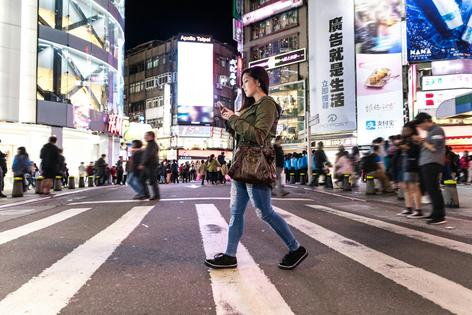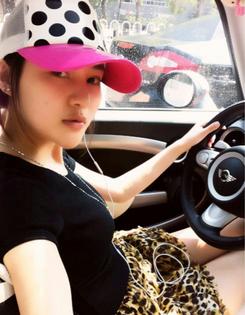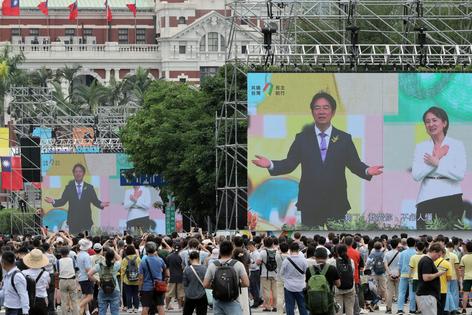China’s crackdown on ‘wealth-flaunting’ social media puts pressure on influencers − both on the mainland and in Taiwan − to echo the party line
Published in Political News
Chinese regulators are in the process of wrapping up a two-month “spring clean” of the country’s social media.
Launched on April 23, 2024, by the Cyberspace Administration of China, the latest Qinglang campaign – the literal meaning of which is “clean and bright” – aims to penalize Chinese social media influencers and internet celebrities deemed to be flaunting wealth or deliberately showcasing a luxurious life built on money to attract followers and traffic. Its reach goes beyond the behavior of social media users on the mainland, with Taiwanese influencers feeling the heat, too.
China is far from alone in expressing official alarm over the perceived harms of social media. The U.S. government on June 17 signaled its desire to slap warning labels on platforms such as TikTok, X and Instagram. But whereas U.S. efforts are framed as protecting the mental health of users, it is the well-being of China’s society that is the focus of Beijing’s crackdown – and regulators there are going beyond mere warnings.
Following the Cyberspace Administration of China’s directive, various Chinese social media platforms blocked the accounts of influencers such as Wang Hongquanxing, who has earned the nickname “China’s Kim Kardashian.”
Wang appears to have been censored for bragging about his extravagant clothing and other luxury goods. And he isn’t alone. Fellow influencer Bo Gongzi received similar treatement for showing off Porsche cars, Hermes bags and other rare and expensive accessories. And Baoyu Jiajie disappeared from Chinese social media platforms after flaunting her luxurious cuisine and lavish properties.
Chinese official media defended the crackdown as a move against money worshipping and what Beijing describes as “toxic traffic” – or attracting online fans for the purposes of making money.
Analysts such as Yao-Yuan Yeh, a Taiwanese professor of political science from St. Thomas University, have argued that the cancellation of the wealth-flaunting influencers is not simply motivated by a desire to protect public morality. Rather, it serves the purpose of mitigating the Chinese public’s growing sense of relative economic deprivation, exacerbated by China’s current slowdown.
While Ye’s point is valid, China has been punishing wealth-flaunting influencers for a long time, long before concerns started to arise over the state of the country’s economy. It reflects wider fears in Beijing that social media could be used to promote views it sees as subversive.
It ramped up in 2014 with the cancellation of Guo Meimei.
Guo is an internet celebrity known for her display of pictures showing a lavish lifestyle, including driving a Mercedes and owning a big mansion.
The measures against wealth flaunting come amid a more general crackdown on what Beijing sees as morally problematic behaviors, such as viewing pornography, gambling, drug use, vulgar livestreaming and displaying contempt for low-income citizens.
The official campaign has won wide support among a generally conservative public; it isn’t just being forced from above.
Chinese social conservatism in this regard leans on a centuries-old preference for equal distribution of wealth, reflected in the Confucian idiom that political leaders should “not worry about scarcity, but rather unequal distribution.”
And many polls show the authoritarian Chinese government enjoys strong public support and trust.
As MIT political scientist Lily Tsai has argued, Chinese people’s expressed support of their authoritarian government is not simply out of fear of political retaliation or satisfaction with long-term economic achievements. Rather, the Chinese Communist Party is also given credit for its ability to satisfy the public’s strong desire for retributive justice.
That is, Chinese people by and large support their government for its use of punishment against those who have run afoul of moral values shared by leaders and ordinary people alike – even if it restricts certain personal liberties.
This public support for measures that crack down on social media acts deemed contrary to Chinese values also serves as a political tool to reinforce the Chinese Communist Party’s worldview.
As experts in Chinese cultural politics, we have noted how, in particular, China is exerting pressure on Taiwanese social media influencers to echo and support its campaign against showy online displays of wealth. More broadly, China is leveraging social media to foster nationalistic support and to further its agenda for the island democracy’s reunification with the Chinese mainland.
The Chinese government has tightened the management of cyberspace by directly or indirectly pressuring celebrities and influencers to publicly support pro-government values and policies.
This takes the form of a pressure campaign against the new Taiwanese president, Lai Ching-te, who was elected in January despite some Taiwanese voters’ worries over his pro-independence views.
On May 20, Lai emphasized in his inaugural presidential address that “the Republic of China (Taiwan’s official name) and the People’s Republic of China are not subordinate to each other” – comments taken as an unapologetic insistence on Taiwan independence.
China Central Television, an official media outlet in China, published a post on its social media account to warn the Lai administration that “Taiwan independence was, is, and will never be possible. China will finally achieve complete reunification.”
Many Taiwanese entertainment celebrities, who operate primarily on the mainland, shared the CCTV post with their followers to show their support of China’s reunification with Taiwan. CCTV in turn reposted their messages, praising the “patriotic” Taiwanese celebrities. This indirectly pressured other Taiwanese celebrities to publicly declare their stance on reunification.
Recent research shows that, on average, Taiwanese celebrities repost official messages less frequently than celebrities from the mainland and Hong Kong. Nevertheless, the frequent political signaling by celebrities on Chinese social media suggests the increasing politicization of popular culture.
Both the crackdown on online displays of wealth and pressure on Taiwanese influencers reflect acknowledgment in Beijing of the power of social media.
As of 2022, China has the largest number of internet and social media users – about 1.02 billion, according to the latest statistics. Chinese people rely on various social media platforms such as Weibo, WeChat, Xiaohongshu and Douyin for news and information – something President Xi Jinping, who came to power in 2012, is well aware of.
The latest “spring clean” of Chinese social media is not the first to take place under Xi’s watch and is unlikely to be the last. Authorities in Beijing know that, if regulated tightly, social media can be used to amplify its message; but if left unchecked, it could result in an increasingly subversive and chaotic cyberspace.
This article is republished from The Conversation, a nonprofit, independent news organization bringing you facts and trustworthy analysis to help you make sense of our complex world. It was written by: Gengsong Gao, University of Richmond and Dan Chen, University of Richmond
Read more:
China’s war games near Taiwan threaten international peace and security
Chinese journalist who raised alarm over COVID is in hiding: is the world noticing?
Is Taiwan a country or not?
The authors do not work for, consult, own shares in or receive funding from any company or organization that would benefit from this article, and have disclosed no relevant affiliations beyond their academic appointment.


































































Comments